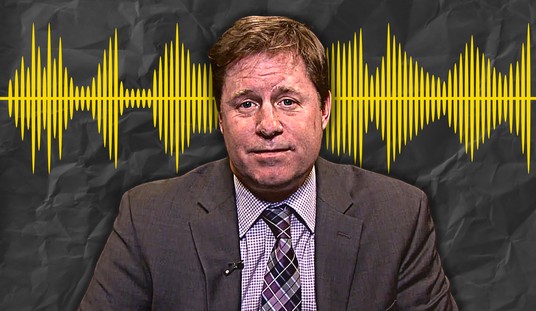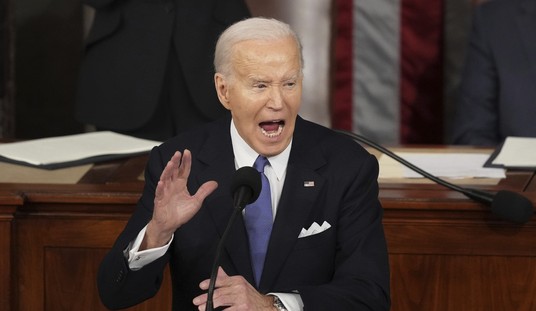After George F. Will wrote a column last month questioning the faulty premises and apocalyptic predictions of global-warming alarmists, he caught holy heck from America's “eco-pessimists.” He and his editors at The Washington Post were blasted with thousands of angry e-mails, most of which challenged Will's assertion that global sea ice levels have not been dramatically reduced by man-made global warming, as environmentalists claim, but are essentially the same as they were in 1979. Will, who had used data from the Arctic Climate Research Center as his source, also was accused of multiple-inaccuracies by The New York Times’ Andrew Revkin. Will wrote a second column defending his data and returning fire at Revkin.
All is calm now and Will is getting ready for the start of his favorite season -- baseball season. I talked to him by phone on Thursday from his office in Washington.
Q: You have felt the righteous wrath of those who believe in man-made global warming. Are you still all there?
A: Oh, heavens. Yeah. The odd thing about these people is, normally when I write something that people disagree with they write letters to the editor or they write a responding op-ed piece. These people simply set out to try and get my editors to not publish my columns. Now I don’t blame them, because I think if my arguments were as shaky as theirs are, I wouldn’t want to engage in argument either.
Q: What disturbs you most about this global warming consensus that seems to be pretty widespread and doesn’t seem to be eroding?
A: Well, I think it is eroding, in the sense that people sign on to be alarmed because it’s socially responsible … (and because it makes them feel good). But once they get to the price tag, once they are asked to do something about it, like pay trillions of dollars, they begin to re-think.
I’ve never seen anything quite like this in my now 40 years in Washington. I’ve never seen anything like the enlistment of the mainstream media in a political crusade -- and this is a political crusade, because it’s about how we should be governed and how we should live; those are the great questions of politics. It is clearly for some people a surrogate religion. It’s a spiritual quest. It offers redemption. But what it also always offers, whether it is global cooling or global warming, is a rationale for the government to radically increase its supervision of our life and our choices. Whether the globe is cooling, whether it’s warming, the government’s going to be the winner and the governing class will be the winner.
Recommended
Now, it seems to me there is a 100 percent certainty that at any moment the planet is warming or it is cooling. That’s what it does. There are cycles well-recorded through history. The climate was once warm enough for Greenland to be called “Greenland” for a reason -- the Vikings farmed there. There was a time when the planet was so cold that Eskimos landed in Scotland in their kayaks. There was “The Little Ice Age.” There were warm periods -- we’ve been through this before. What’s different now is that we have a media addicted to hysteria and we have enormous political and financial stakes in convincing people that vast shifts of power and resources should be given to the government to combat climate change. The prudent people in this refer to “climate change” so whatever happens they can say, “See, we told you.”
Q: Will you dare to do any more on global warming?
A: Well of course! It doesn’t take daring. Seriously, I don’t understand what there is to worry about. In fact, the global warming “caucus,” if you will, seems to me singularly toothless. They can’t even get the globe to cooperate. It stubbornly refuses to warm at the moment.
Q: Is there any big lesson that you’ve learned from this encounter with the global-warming people?
A: This is not a life-changing experience. This is just another encounter with another interest group doing interest-group politics. This strikes me as a very minor event.
Q: In your career or … ?
A: In the week! In the week! This is just not a big deal. I’ve written 5,000 columns and a lot of them have caused ruckuses bigger than this.
Q: But Andrew Revkin and The New York Times? They don’t usually pick on you, do they?
A: No, but they no doubt have their reasons.
Q: OK, let’s switch to baseball. The season is near and we hear you caught a Cubs game in Arizona on Monday. Are you still as eager as ever for a new season to start?
A: It gets more intense every year. I used to wonder when I'd grow up and now I know I’m never going to -- and I’m just as glad.
Q: The answer is probably obvious, but I suppose then for you major league baseball is far bigger and far more important to you than its current problems with star players?
A: Oh, heavens yes. Baseball’s had gambling problems before. It had cocaine problems in the '70s. The steroids problem has been serious, but I think we are closing that steroids parenthesis in baseball history. Major league baseball itself is funding research for the currently untestable use of human-growth hormones, so baseball is being proactive here. And the fans are snappin’ up tickets. Records are being set. Competitive balance is better than ever before. New ballparks all over the land. The old multipurpose ballparks -- another one has just gone down in Shea Stadium. So the sport on the field is getting better. The fields are getting better. The game’s getting better.
Q: Do you think major league baseball -- and all major pro sports -- should be policing the use performance-enhancing drugs?
A: Yes. Because it’s cheating. Because it tilts the playing field so that the cheaters have an advantage unless other people want to a), break the rules; b), break the law; or c), put their health at risk.
Q: We know you love the Pirates.
A: Absolutely.
Q: The Pirates will soon begin what probably will be their 17th straight losing season. Largely, this is because Pittsburgh is a small-market team that can’t pay the stars it needs to compete. Do you have some wise words or words of consolation even to offer this city’s long-suffering baseball fans?
A: Sure. Oakland is one. Minnesota is another. Both of them -- with gifted managers and small payrolls -- have been competitive fairly consistently over decades. Pittsburgh does operate under a handicap, but the baseball economic model has been improved for the advantage of teams like Pittsburgh, with increased revenue sharing and the competitive-balance tax on teams with the largest payrolls. Pittsburgh, as I’m sure Pirate fans know, made a bunch of mistakes that were optional and were not driven by any inherent disadvantage in the team. So there is no question that although it is more difficult in Pittsburgh than other places, it is by no means impossible for the Pirates to be a competitive team in the National League.
Q: Do you think the Pirates will be a .500 or better team this year?
A: I think it’s doable.
























Join the conversation as a VIP Member